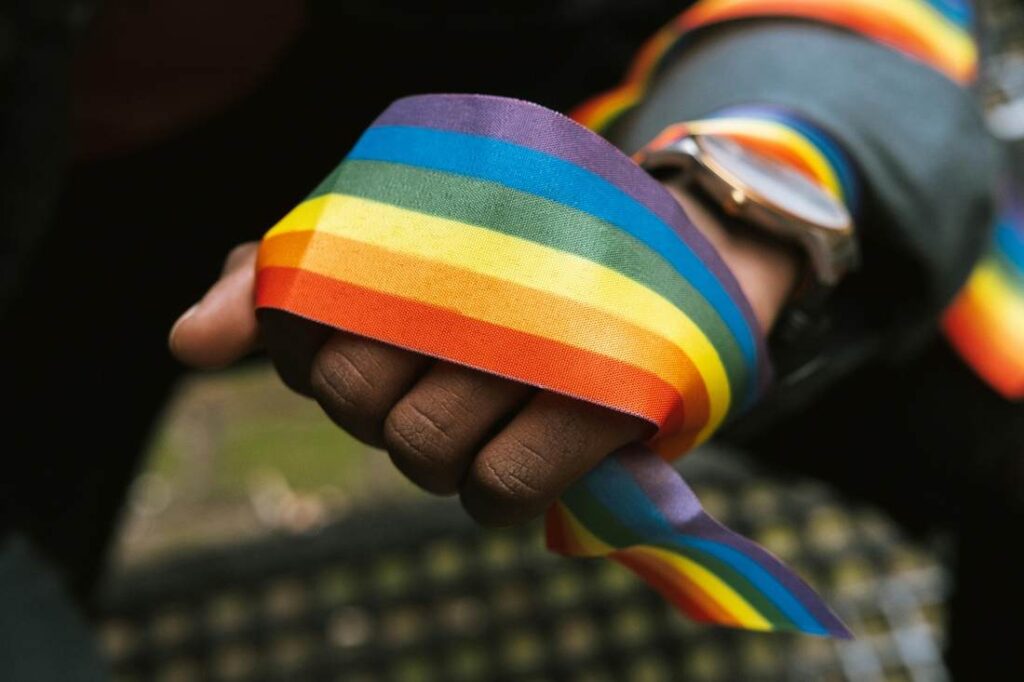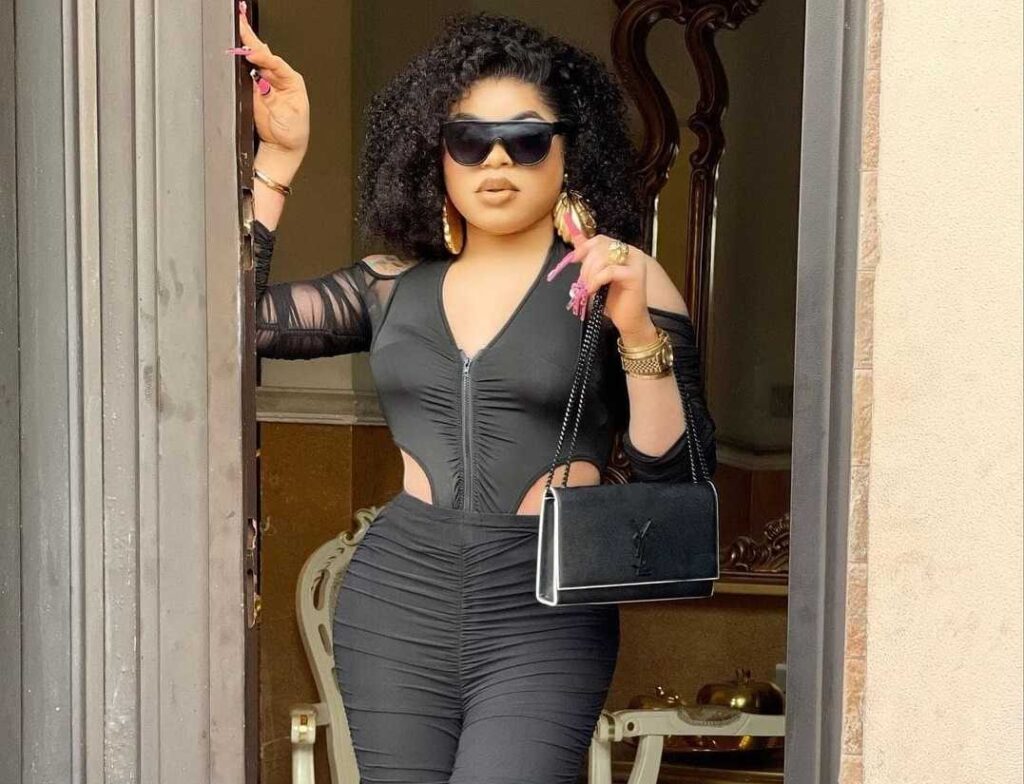Written by Azeezat Adeniji & Daniel Nkado

For the Nigerian non-gays, the death of a gay person is good news to society. Some call it God’s work!
****
Africa remains one of the worst places for gay people to live. While a few African countries like South Africa and Namibia have made significant strides in the acceptance of LGBTQ people, Nigeria, Uganda, and most other African countries are yet to get over their prejudices.
LGBTQ+ individuals living in Nigeria constantly face social stigma, discrimination, and violence. This can manifest in ostracization from family and community, harassment, physical violence, and even legal persecution.
The Nigerian legal system offers no protection for LGBTQ people even if they are citizens of the country. Nigerian citizens are largely conservative people with the Northern part of the country being predominantly Muslim and the Southern part mainly Christian. Hatred for gay people is perhaps the only thing that brings Nigerian Muslims and Christians together.
The country has a history of unbearably harsh climate towards LGBTQ people. In the Northern region of Nigeria, homosexuality has been illegal since 1904, over a century ago, whereas other parts of the nation didn’t outlaw it until 1916. The penalty for being gay in Nigeria varies. Under federal law, LGBTQ individuals could face imprisonment ranging from 14 years to life. As for the Northern states that operate under Shari’a law, the maximum punishment for homosexuality is death by stoning.
Beyond the legal consequences, LGBTQ people in Nigeria face severe social stigma. The general public is very hostile towards LGBTQ people and the laws don’t help either. These harsh laws have worsened violence against LGBTQ people with many individuals uniting in their “righteous resentment” for gay people. It is not unheard of for a person to be ostracized by family and society due to their sexuality. The fear of being outed can lead to isolation and mental health struggles for many within the LGBTQ community.
But even worse, many gay people have been killed or severely harmed because of their sexuality.
In 2022, gay rights activist, Bisi Alimi wrote about a gay man who was killed in Lagos. In a post to his Facebook page, Alimi wrote:
“Last night, a young gay man was killed in Lagos. His name was Dave. He was killed because he allowed a man he trusted to spend the night in his bed, in his arms, in his trust, in his love. Every year, young gay men in Nigeria become victims of very simple things in life; seeking love and companionship.”
Unfortunately, the killing of gay men is nothing strange in Nigeria. There are numerous instances of these hate crimes occurring. The government continues to turn a blind eye while the public cheers these criminals on. For the Nigerian non-gays, the death of a gay person is good news to society. Some call it God’s work.
In 2014, former president of Nigeria, Goodluck Jonathan signed the Same-Sex Marriage (Prohibition) Act into law, banning the marriage of LGBTQ people in the country. Shortly after the bill was passed into law, hundreds of Nigerians suspected of engaging in homosexual acts were rounded up and taken into police custody. In addition, anyone who speaks out in support of the marginalized group or advocates for them risks up to 10 years in prison. The law has instigated more violence against gay people since its enactment by emboldening hateful individuals to harm anyone perceived to be gay. The law has also exposed LGBTQ people to constant harassment and extortion by local authorities. Some Nigerian gay people have recounted being blackmailed with threats of being outed or reported to the police.
In Bauchi state, one of the Northern Nigerian states that operate under the draconian Shari’a law, a gay man was lashed 20 times after being convicted of sodomy. In July 2022, a Shari’a court in Bauchi sentenced three men to death by stoning after they were convicted of engaging in homosexuality. The men, who were 20, 30, and 70 years old respectively, confessed to the crime even though they were not represented by lawyers. Any death sentence passed by a Sharia court must be approved by the state governor before it can be carried out. This case sparked a public outcry among Nigerian activists with many of them calling for restraint and others proclaiming the penalty unconstitutional. There is a very thin line between the death penalty of the Shari’a court and vigilante justice. The reason for this is that the stoning of the sentenced people must be carried out by the general public.
Transexuality in Nigeria
The Nigerian law has remained silent about trans people. But this group also face stigma, discrimination and violence just like gay people. Bobrisky (born Okuneye Idris Olanrewaju), a Nigerian transgender woman and social media personality was arrested in April 2024 for allegedly defacing naira notes. However, before her arrest, Bobrisky was publicly condemned for winning the prize for the Best Dressed Woman at a Nollywood event. This sparked a lot of negative reactions from Nigerians, with many of them calling for her arrest.
Shortly after, Bobrisky was convicted for the abuse and mutilation of naira notes, a very rare conviction. Many believed the arrest and conviction was a disguised scheme to put the socialite behind bars. “Spraying money” is a Nigerian party tradition. If this law were to be truly enforced, the majority of Nigerians would undoubtedly find themselves behind bars. Even after her arrest, Bobrisky’s public humiliation continued, with prison authorities announcing that she had a penis, not a vagina, which makes her a man. With this announcement comes the question: if biological characteristics determine a person’s gender in what box will we place intersex people?

Other internet personalities apart from Bobrisky play around the restrictions of gender as a means of expression. A popular Nigerian content creator, James Brown referred to himself as a drag queen. Some other Nigerian crossdressers include Tobi the Creator, Onyx Godwin, Jeffina Lewinsky (Jefferson Ndoma). Nigerian transgender women apart from Bobrisky are Jay Boogie, Bryan Nwakoro, and Jpblush. These individuals live in constant acknowledgement of the risk that comes with their existence.
Several LGBTQ Nigerians have fled the country in the hopes of getting asylum in countries with more favourable atmospheres. In a 2014 interview with Al Jazeera, Michael Ighodaro, an asylum seeker in the United States, said:
“I came here with with nothing. I just came here. Staying (in Nigeria) was getting more dangerous than everyone thought it would be.”
He went on to say:
“You don’t want to stay back in a country where right now there is a law that can send you to jail for 14 years or you can get beaten to death or you can’t get access to health care services if you are gay. You don’t want to live there.”
In a 2019 essay published on CNN, Richard Akuson described Nigeria as a cold-blooded country for gay men. Akuson is a Nigerian lawyer, LGBTQ rights activist, editor, and founder of A Nasty Boy Magazine, Nigeria’s first LGBTQ+ publication. Due to his advocacy for the rights of LGBTQ people, Akuson was brutally attacked by some men in his hometown. After the attack, Akuson fled Nigeria for New York. He wrote:
“Days after my attack, I gathered my life of 25 years into two suitcases and boarded the flight to New York. Like so many other asylum seekers before me, leaving my country was a matter of survival.”
The stance of the Nigerian police is not any different from the law or the cultural views held by many citizens of the country. In 2019, a Nigerian policewoman issued an ultimatum to LGBTQ people across the country to leave or face being prosecuted. Officer Dolapo Badmos made the comments on her personal Instagram account. She wrote:
“If you are homosexually inclined, Nigeria is not the place for you. There is a law (Same-Sex Prohibition Act) here that criminalizes homosexual clubs, associations, and organizations with penalties of up to 14 years in jail. So if you are homosexual in nature, leave the country or face prosecution.”
Interestingly, from the reactions the post generated, it was clear that the majority of Nigerians agreed with her statement. Only a few people called her out and asked her to take down the post as it has the tendency to incite violence against LGBTQ people in Nigeria.
It’s been a decade since the cruel Same-Sex Prohibition Act was enacted and to many gay Nigerians living in the country…this translates to 10 whole years of pain and suffering.



“If biological characteristics determines the gender of a person, in what box will we place intersex people?” 🤔💭 DNB Stories, write something on intersex people. Do they really exist in Nigeria?